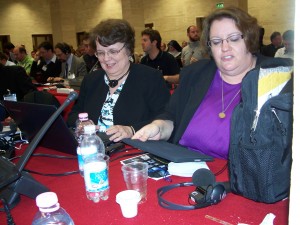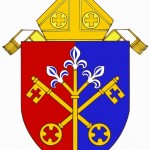 The times, they are a changin’. In recent years, we’ve seen the demise of print media including once-popular news/feature magazines such as Life and Newsweek, decorating magazines like Country Home and Cottage Living, computer tech magazines such as PC Magazine, online gaming magazines like PlayStation, kids’ magazines like Disney Adventure. And there are newspapers which have downsized, gone online, or completely folded: the Rocky Mountain News, the Baltimore Evening Sun, and some 200+ other papers have ceased publication since 2009.
The times, they are a changin’. In recent years, we’ve seen the demise of print media including once-popular news/feature magazines such as Life and Newsweek, decorating magazines like Country Home and Cottage Living, computer tech magazines such as PC Magazine, online gaming magazines like PlayStation, kids’ magazines like Disney Adventure. And there are newspapers which have downsized, gone online, or completely folded: the Rocky Mountain News, the Baltimore Evening Sun, and some 200+ other papers have ceased publication since 2009.
In the Catholic world, several major magazines have followed the trend and have begun publishing exclusively online—among them Crisis, Catholic World Report, Homiletics and Pastoral Review, and Faith and Family.
But this does not, as the National Catholic Register reports, mean that there is less to read:
Fewer print publications, however, does not necessarily equate to less material to read. The growth of online publications and blogs has attracted readers far surpassing the number of subscribers of most print publications.
* * * * *

Recognizing that the Internet is where it’s happenin’—that readers, adherents and potential converts are turning for information to website and online periodicals and blogs—the Catholic Church has expanded its outreach in the popular social media platform.
In May 2011, the Pontifical Council for Social Communications and the Pontifical Council for Culture hosted the first-ever Vatican Blogfest, inviting 150 bloggers from around the world to Rome for a conference.

In June 2011, with the touch of a finger on his iPad, Pope Benedict launched the Vatican’s new website, news.va.
Last year, the bishops made use of the web to publicize the 2011 USCCB General Assembly.
Now, Newsmax is reporting that before the end of the year, Pope Benedict XVI will join the ranks of communicators who use Twitter to communicate their message to a wide audience. The Holy Father is expected to tweet only occasionally, perhaps linking back to his homilies or statements on the Vatican’s website.
* * * * *

And on Sunday, November 11, the USCCB will gather together those same bloggers who met in Rome last year, as well as others whose voices are heard in the Catholic blogosphere, for “An Encounter With Social Media: Bishops and Bloggers Dialogue.” Bishop John Wester of Salt Lake City, chairman of the USCCB Committee on Communications and the moderator for the blogger event, has expressed the bishops’ hope that the event will yield fruitful discussion and a deeper understanding of how social media and the Church can enrich one another.
Panelists at the first-ever Bishops/Bloggers Meeting here in the United States will include:
- Bishop Christopher Coyne, auxiliary bishop of the Archdiocese of Indianapolis (I called him the “Uber-Blogger” at last year’s USCCB Assembly);
- Rocco Palmo, author of the popular blog Whispers in the Loggia;
- Mary DeTurris Poust, a Catholic journalist, author and blogger; and
- Terry Mattingly, author of the syndicated column On Religion and the blog Get Religion.
The USCCB Department of Communications and the Catholic Communication Campaign are sponsors of the November 11 event.
 I will be on the scene in Baltimore—attending the bishops/bloggers meeting, and chatting firsthand with the leaders of the Church here in the United States about their vision for the increased use of social media in communicating the Gospel message. I’ll also blog and tweet live from the floor of the USCCB General Assembly.
I will be on the scene in Baltimore—attending the bishops/bloggers meeting, and chatting firsthand with the leaders of the Church here in the United States about their vision for the increased use of social media in communicating the Gospel message. I’ll also blog and tweet live from the floor of the USCCB General Assembly.
I’m excited for the opportunity to be your eyes and ears in Baltimore! The bishops will be considering a major statement on preaching the Sunday homily, use of new media technologies, and modern-day challenges to their teaching authority. They will also consider a statement on work and the economy, and fundraising norms as cited in Canon 1262.
TO BE SURE YOU RECEIVE THE LATEST UPDATES as the bishops wrestle with the difficult topics of the day, sign up (in the right margin of this post) via email or RSS, or follow me on Facebook, Twitter, Google Plus, LinkedIn or Pinterest.











